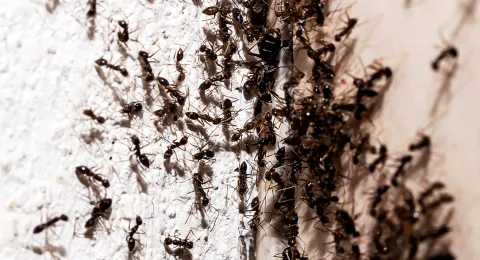
DAILY MAVERICK featuring ANNELI KAMFER
DAILY MAVERICK
featuring ANNELI KAMFER
20Twenties: Eve of Destruction — how it came into being
by Tiara Walters & Branko Brkic
The burning world, it is explodin’,
Violence flarin’, fear & loathin’,
You’re bad enough to scream, but your throat is chokin’,
You don’t believe in oil, but it’s your car that’s smokin’,
And even the Jordan river has no water floatin’,
But you tell me over and over and over again my friend,
Ah, you don’t believe we’re on the eve of destruction.
Don’t you understand, what I’m trying to say?
And can’t you feel the fears I’m feeling today?
When the threshold is crossed, it’s the end of the game,
There’ll be nothing to save when the world is aflame,
Take a look around you, girl, it’s bound to scare you, boy,
And tell me over and over and over again my friend,
Ah, you don’t believe we’re on the eve of destruction.
Yeah, my blood’s so mad, feels like coagulatin’,
I’m sittin’ here, just contemplatin’,
I can’t twist the truth, it knows no regulation,
Handful of senators don’t pass legislation,
And marches alone don’t bring the solution,
When the human race is so close to dissolution’,
This whole crazy world is one big confusion,
And you tell me over and over and over again my friend,
Ah, you don’t believe we’re on the eve of destruction.
Think of all the coal that’s blazing your soul
Then look at your own town spinning down the hole
Ah, you may leave Earth, for four days in space,
But when you return, the same old scorching place,
The poundin’ of the drums, the fright and disgrace,
You can bury your dead, but don’t leave a trace,
Hate your next door neighbor, but don’t forget to say your grace
And you tell me over and over and over and over again my friend,
You don’t believe we’re on the eve of destruction.
No, you don’t believe we’re on the eve of destruction.
The burning world, it is explodin’,
Violence flarin’, fear & loathin’,
You’re bad enough to scream,
but your throat is chokin’,
You don’t believe in oil,
but it’s your car that’s smokin’,
And even the Jordan river has
no water floatin’,
But you tell me over and over and
over again my friend,
Ah, you don’t believe
we’re on the eve of destruction.
Don’t you understand,
what I’m trying to say?
And can’t you feel the fears
I’m feeling today?
When the threshold is crossed,
it’s the end of the game,
There’ll be nothing to save
when the world is aflame,
Take a look around you, girl,
it’s bound to scare you, boy,
And tell me over and over and
over again my friend,
Ah, you don’t believe
we’re on the eve of destruction.
Yeah, my blood’s so mad,
feels like coagulatin’,
I’m sittin’ here, just contemplatin’,
I can’t twist the truth,
it knows no regulation,
Handful of senators,
don’t pass legislation,
And marches alone,
don’t bring the solution,
When the human race is
so close to dissolution’,
This whole crazy world,
is one big confusion,
And you tell me over and over and
over again my friend,
Ah, you don’t believe
we’re on the eve of destruction.
Think of all the coal
that’s blazing your soul
Then look at your own town
spinning down the hole
Ah, you may leave Earth,
for four days in space,
But when you return,
the same old scorching place,
The poundin’ of the drums,
the fright and disgrace,
You can bury your dead,
but don’t leave a trace,
Hate your next door neighbor,
but don’t forget to say your grace
And you tell me over and over and
over and over again my friend,
You don’t believe
we’re on the eve of destruction.
No, you don’t believe
we’re on the eve of destruction.
Concept and updated lyrics by Branko Brkic & Tiara Walters
Video by Bernard Kotze
Concept and updated lyrics by
Branko Brkic & Tiara Walters
Video by Bernard Kotze
Song produced by Theo Crous & Bernard Kotze
Mastered by Reuben Cohen
Song produced by
Theo Crous & Bernard Kotze
Mastered by Reuben Cohen
Vocals – Anneli Kamfer
Guitars – Albert Frost
Harmonica – Dave Ferguson
Bass – Schalk Joubert
Drums – Kevin Gibson
Vocals – Anneli Kamfer
Guitars – Albert Frost
Harmonica – Dave Ferguson
Bass – Schalk Joubert
Drums – Kevin Gibson
Daily Maverick’s Our Burning Planet – high-end journalism to address humanity’s greatest challenge
With Cape Town’s Day Zero as its wake-up call, Daily Maverick established Our Burning Planet. In the three years since then, the specialist climate crisis reporting unit has drawn attention to the head-on collision between bad governance and climate change, showing how the country is being reshaped by this phenomenon.
Daily Maverick is one of the largest independent news media in South Africa and one of the most respected in the media landscape. Founded in 2009 as a start-up of five people, it has grown into an organisation with more than 120 staff at a time when the number of journalists in the country has shrunk by half.
Its vision to “defend truth” makes it beloved by its readers and revered, and perhaps feared, by politicians and the people in power who it covers.
Daily Maverick is a mission-driven organisation that is intent on ensuring its readers “know more” and “know better”.
Three years ago, Daily Maverick began running a series called “Our Burning Planet”.
Born out of the warning that was the once-in-628-years drought that threatened Cape Town’s water supply, the series was our wake-up call that, as media, it was irresponsible to report on human-generated global warming with circumspection. We had to admit: we are heating up the planet — and it was time to do something about it.
And so a commitment was made that we will “concentrate on the head-on collision between bad governance and climate change”, and show how the country is being reshaped by this phenomenon.
Daily Maverick embarked on a process to build what is now considered the biggest climate crisis reporting unit in a mainstream media organisation in South Africa, potentially in southern Africa.
Our Burning Planet is not an activist effort, but rather an example of high-end journalism addressing humanity’s greatest challenge and bringing about social impact off the back of editorial focus on key areas of concern.
Its vision is for more members of the public, civil society, business leadership and government to better understand the impact and urgency of responding to the climate crisis.
Music journalism in the form of Eve of Destruction is its latest effort to achieve that. OBP/DM


NB: John Lewis quote at the end of the video refers to a saying from Jewish ethical tradition:
(יד) הוּא הָיָה אוֹמֵר, אִם אֵין אֲנִי לִי, מִי לִי. וּכְשֶׁאֲנִי לְעַצְמִי, מָה אֲנִי. וְאִם לֹא עַכְשָׁיו, אֵימָתַי
(14) He [Rabbi Hillel] used to say: If I am not for me, who will be for me? And when I am for myself alone, what am I? And if not now, then when?
Sign up for the Our Burning Planet newsletter.
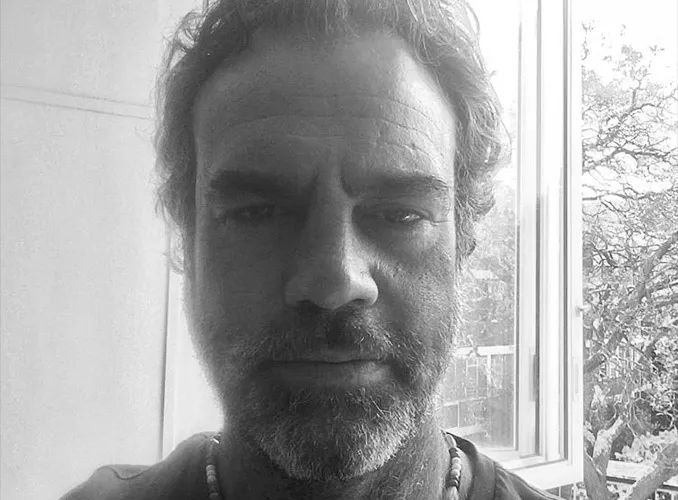
As the co-founder of the unit, soon after we decided on the name, Kevin was concerned that we would be perceived as “doomerist”. So why, back in October 2018, did we stick with “Our Burning Planet”? The simple answer could be found in the science, which even then was as terrifying as it was true.
Four years later, that truth has become self-evident. Wildfires, floods, storms, droughts, species extinction, biodiversity loss, chemical pollution of land, air and sea — all of it now happening at the scale and speed of a big-budget apocalypse blockbuster.
Except, of course, this time the credits don’t roll; in this movie, there is no leaving the theatre.
Like many of you, Kevin is a parent. His daughter is nine years old, his son, five. He has been a journalist for 25 years, and the most valuable thing he can offer his kids (aside from his love and presence) is time on the job.
He has published two books of investigative non-fiction — the first, Ways of Staying (Picador Africa in South Africa, 2009 / Granta in the UK and Canada, 2010), questioned whether the violent crime in my country was a necessary tax of its history; the second, Continental Shift: A Journey into Africa’s Changing Fortunes (Jonathan Ball in South Africa / Granta in the UK and Canada, 2016), was an 18-country, nine-year exploration of the forces shaping Africa in the 21st century.
Supported by assignments for the likes of The Guardian, Granta Magazine and Daily Maverick, these books were a decade-long initiation into the ravages of colonialism, conflict and corruption.
Looking back, though, he believes they were merely preparation for what was coming next — the story of planetary collapse, the most urgent story ever told.
Investigative journalism, when done right, can be the slingshot that fells the most rapacious Goliaths; it can bring down presidents, it can cripple corporations. It’s a great job, sure, but today — more than ever — it’s a response to the call of the coming generations.
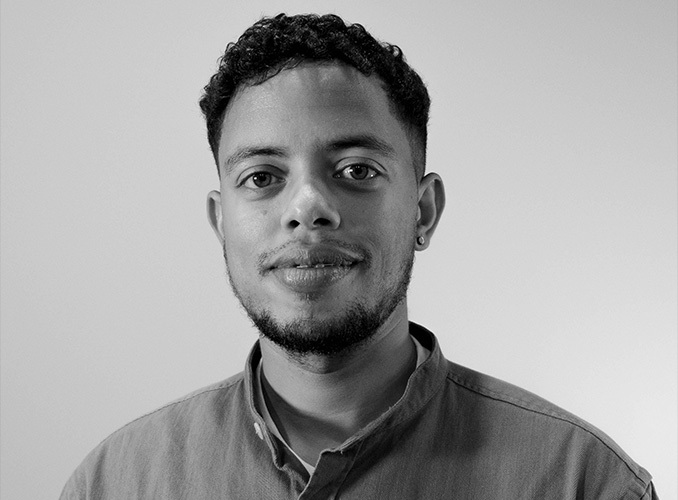
Ethan van Diemen is a South African data and investigative journalist based in Cape Town. Formerly based in Johannesburg as an Open Society Foundation Investigative Journalism Fellow, his reporting is at the intersection of the science of climate change, energy and sustainable development in sub-Saharan Africa. He is part of the first cohort of the Oxford Climate Journalism Network.
His coverage of environmental crises is based on a recognition of the existential nature of the multisectoral threat it poses to human life and wellbeing, as well as its impacts on nature, broadly defined. Implicit in this recognition is the knowledge that humans, as agents of change, are not powerless in responding to the challenge.
Ethan’s reporting is premised on the belief that, in this decisive decade, excellent journalism that cuts to the heart of the issues and that investigates, reports on and informs the public about the scope, nature, causes and solutions of and to the environmental crisis and humanity’s role in both causing and ameliorating it, is broadly in the public interest and serves to empower human beings as agents of change.
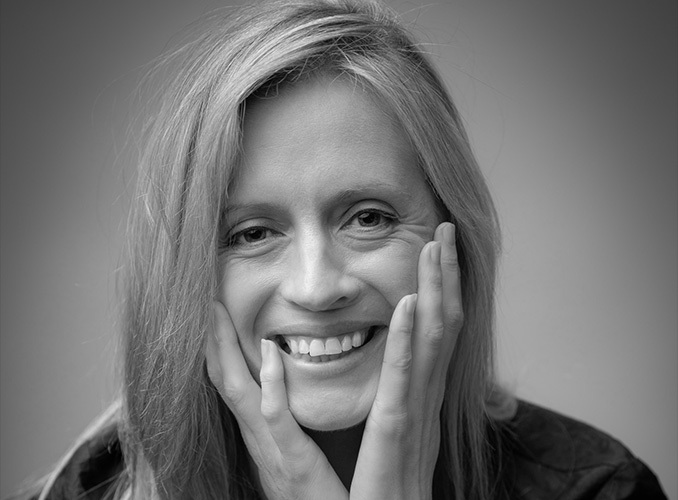
Tiara Walters is an investigative journalist/author based in the Antarctic gateway port of Cape Town. The first South African female journalist to oversummer in Antarctica in 2009, her writing has featured in the American Polar Society’s Polar Times, the Lonely Planet Guide to Antarctica, PBS, Daily Maverick’s Our Burning Planet and more.
A defender of the right to be cold, Walters has a special interest in the governance of the melting poles. In 2021, she revealed the moment Russian LNG vessels crossed paths on the Arctic’s thawing Northern Sea Route for the first time in winter, without icebreakers.
Months later, she exposed Russia’s two-decade record of looking for Antarctic fossil fuels. Since then, she has continued to hold polar powers to account.
These efforts have exposed Germany’s media ban at the 2022 Antarctic Treaty meeting, showed why China blocked a penguin rescue plan and broke the news that rampant Antarctic tourists were likely to breach the 100,000-mark for the first time in a single season.
She also co-adapted Eve of Destruction with Daily Maverick editor-in-chief Branko Brkić.
“Earth’s complexity, and the vested interests that threaten it, drive my work,” Walters says. “Through music journalism, I hope to continue what a mentor taught me: take away the excuse of saying, ‘I did not know’.”
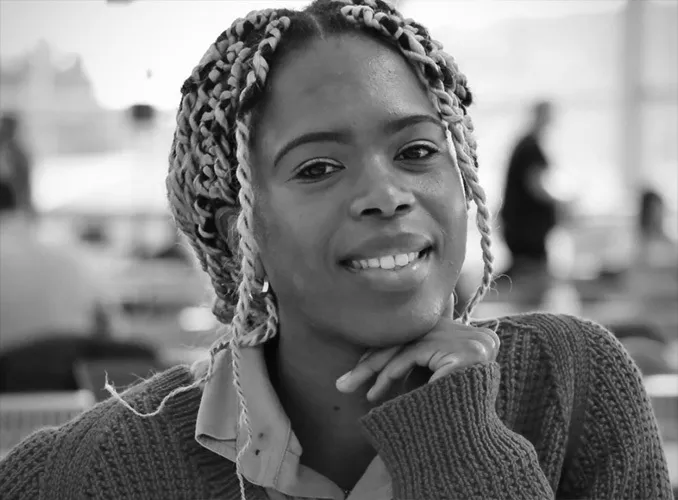
Onke Ngcuka is an environmental journalist with Daily Maverick’s Our Burning Planet unit.
She has covered topics ranging from the effects of the climate crisis on mental health to being in Glasgow, Scotland, to report on the environmental conference, COP26, as well as doing on-the-ground reporting of the devastating KZN floods, and everything in between.
Most recently, Ngcuka was in Nairobi, Kenya, covering the United Nations Environment Assembly-5, where the first legally-binding draft treaty to end plastic pollution was adopted.
Prior to her being an environmental reporter, Ngcuka completed her internship at Reuters news agency where she reported on general and financial news, alongside being a Reuters TV producer. She also briefly freelanced as a tech reporter for Quartz Africa and Rest of World.
She has just completed a fellowship on climate justice with JournAfrica! and the Rosa Luxembourg Foundation, for which she attended a workshop in Berlin, Germany. Ngcuka also has some of her work on the fellowship’s blog, “Climate Central”.
Ngcuka completed her studies at the University of the Witwatersrand in Johannesburg where she earned an honours in journalism and media studies, as well as an undergraduate degree in Politics, International Relations and Psychology.
She plans on furthering her knowledge of the climate crisis and climate justice by investigating and writing on the link between climate, people and food.
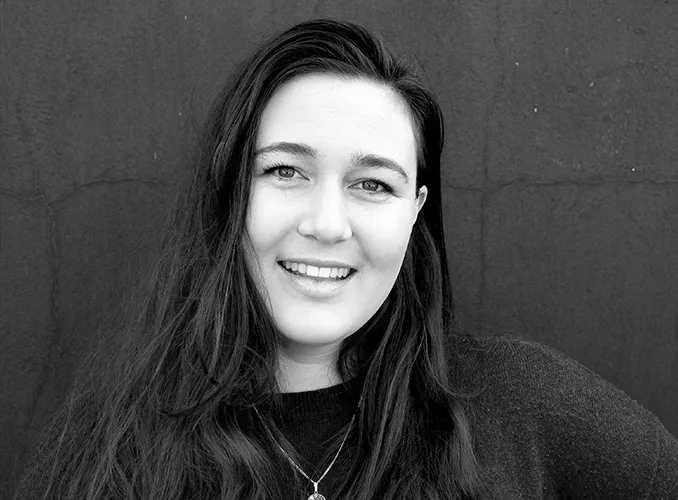
Like most people, Julia used to have a general, if vague, understanding of what the climate crisis was. In the back of her mind, she knew that temperatures are rising, that she should be recycling and that coal was bad news.
But after meeting three young South African climate activists who featured in her thesis documentary for her media honours at UCT, she began to learn about the immediate and disproportionate impact the climate crisis was having on communities in South Africa, and how – despite historically being the least emitters of greenhouse gases – the country is a climate hotspot and warming at twice the global average, and does not have the resources to deal with extreme climate events.
She realised that as a journalist, one of the most important things she could be doing is informing the public on the urgency and impacts of this crisis, and holding the government accountable for its dogged persistence in exploiting fossil fuels and destroying biodiversity.
As a junior journalist, she has leveraged her writing, researching, interviewing, and photographic skills to compile meaningful stories about the direct impact of the climate crisis on vulnerable communities most susceptible to the impacts of climate change, educate the public in accessible terms on the physical science climate change, and report on the government’s detrimental relationship with fossil fuels.
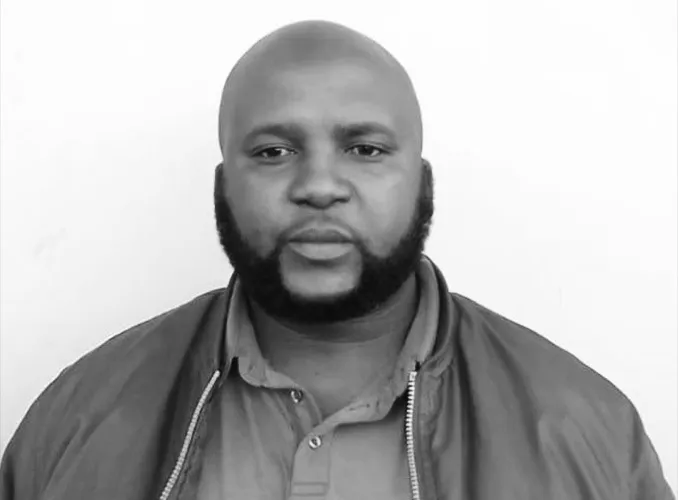
Tembile is a journalistic all-rounder (having written sports, politics, hard news) with over 10 years of experience. Over a year ago, he began to understand more about the climate crisis and its effects on our beautiful planet.
With his love for community news and telling human interest stories, he decided to tell climate stories through communities most affected by climate change. Through his writing, he has reflected on the human experiences of the climate crisis and how it affects their livelihood. He believes in writing climate change stories that will have an impact on people, educating them and bringing awareness to those who are still in the dark.
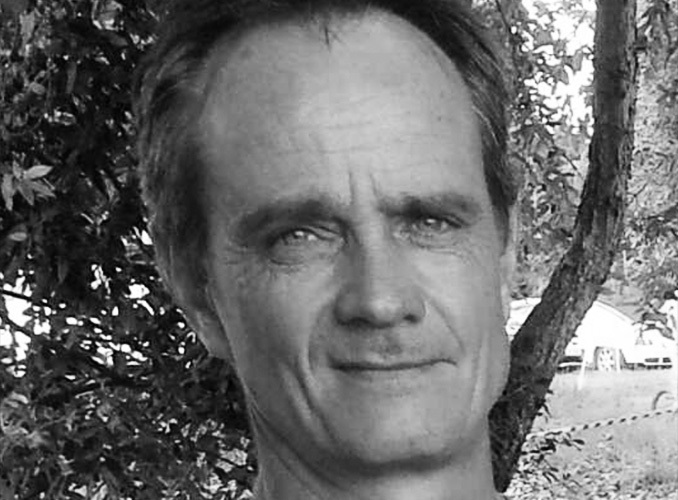
Tony is a freelance environment journalist from Durban. Growing up in Kenya and Zimbabwe, he was exposed to wide open, wild spaces from an early age. After toying with the idea of a career in nature conservation, archaeology or as a wildlife vet, he instead ended up writing about many of the issues close to his heart.
His interests cover a broad range of environmental problems, including the poisoning of people and nature by the relentless streams of pollution entering air, water and soil across the world.
He wrote for The Mercury newspaper and other Independent Media group titles for three decades, but abandoned that ship in 2016 following the steady collapse of editorial standards under Iqbal Survé’s Sekunjalo regime.
Carnie’s determination to continue writing about the global environmental crisis has been shaped and inspired by a range of activists including Dr Vandana Shiva, Anil Agarwal, Dr Ian Player and Dr Peter Montague (a relatively obscure American historian and journalist dedicated to environmental health and justice).
During a brief visit to Washington DC, Carnie was determined to meet Montague and they ended up sitting for several hours on a park bench discussing the future of the environmental justice movement.
It was during this meeting in 1999 that Montague predicted the emerging climate crisis would become the turning point in humanity’s relationship with the Earth.
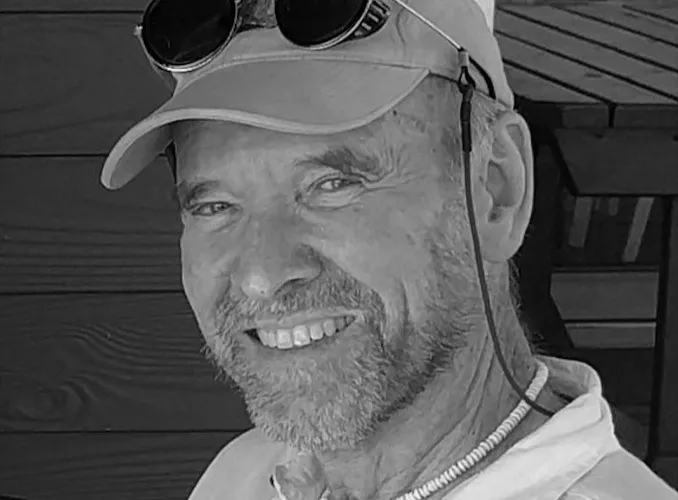
Don is an investigative journalist, photographer and travel writer who, some time back, realised he knew little about the natural world. So he set out to discover it. This took him to five continents – including Antarctica – and resulted in six books on natural history and hundreds of articles. He has degrees in criminology, political science and African history.
His focus regarding the human-induced climate crisis is the impact it has on the living world and the fabric which connects it. Essentially, biodiversity. We are losing wild rangelands, the ocean’s life systems and avian species. His core focus is animal/human interaction, welfare and the impact of issues like trophy hunting, range limitation, animal wellbeing and governance of wild biomes.
What very often drives him is anger at the damage humans do to the planet and its species. And compassion for those who do not have a voice. Where he can be, he is that voice.
Books include: Gang Town, which won the City Press Tafelberg Non-Fiction Award; Writing Left, a biography of the journalist Ruth First; Voices of Liberation – The Brotherhoods, Gangs, Rituals & Rites of Passage; Rainmaker, a novel shortlisted for the 2009 European Union Literary Award; Natural Selections; African Journeys; Just Add Dust; Loveletters to Africa; Blue Ice: Travels in Antarctica; The Woman who Lived in a Tree and Other Perfect Strangers; Wild as it Gets; The Last Elephants (with Colin Bell).
Africa’s last Lions (with Colin Bell) is in process. Inside Kruger Park (with Helena Kriel) is in process.
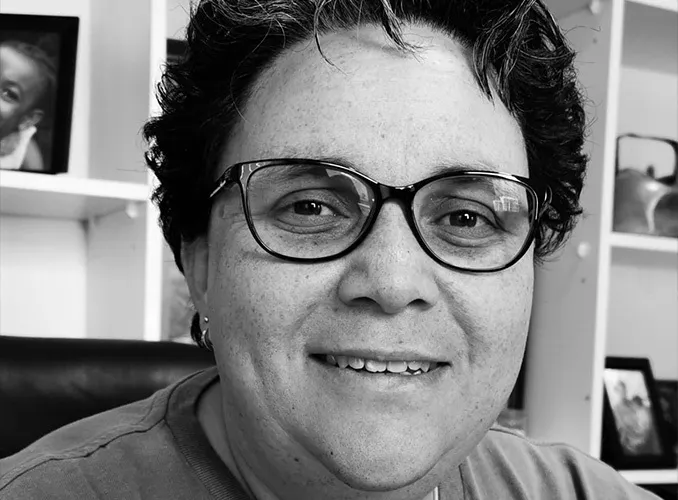
Jillian Green is Deputy Editor of Daily Maverick and Managing Editor of Our Burning Planet.
Based in Johannesburg, Jillian has been part of the South African media landscape for over 20 years. Having written on a variety of topics including health, science and HIV/Aids, she now spends her days working behind the scenes leading and motivating teams of talented journalists to keep shining a light in dark places and exposing malfeasance in all its guises.
Her work on Our Burning Planet is in part motivated by her two children aged 14 and 16 who, if the climate crisis is not arrested now, face a world too horrible to contemplate. There is no planet B for humanity.
She believes future generations are depending on the adults today to think beyond themselves and do what’s best for those who will come after.
Daily Maverick © All rights reserved
| Cookie | Duration | Description |
|---|---|---|
| __cfduid | 1 month | The cookie is used by cdn services like CloudFlare to identify individual clients behind a shared IP address and apply security settings on a per-client basis. It does not correspond to any user ID in the web application and does not store any personally identifiable information. |
| _GRECAPTCHA | 5 months 27 days | This cookie is set by Google. In addition to certain standard Google cookies, reCAPTCHA sets a necessary cookie (_GRECAPTCHA) when executed for the purpose of providing its risk analysis. |
| cid | 1 year | This is an important cookie in making credit card transaction on the website. It allows the online transaction without storing the credit card information.This service is provided by Stripe.com. |
| connect.sid | 1 month | This cookie is used for authentication and for secure log-in. It registers the log-in information. |
| cookielawinfo-checkbox-advertisement | 1 year | Set by the GDPR Cookie Consent plugin, this cookie is used to record the user consent for the cookies in the "Advertisement" category . |
| cookielawinfo-checkbox-analytics | 11 months | This cookie is set by GDPR Cookie Consent plugin. The cookie is used to store the user consent for the cookies in the category "Analytics". |
| cookielawinfo-checkbox-functional | 11 months | The cookie is set by GDPR cookie consent to record the user consent for the cookies in the category "Functional". |
| cookielawinfo-checkbox-necessary | 11 months | This cookie is set by GDPR Cookie Consent plugin. The cookies is used to store the user consent for the cookies in the category "Necessary". |
| cookielawinfo-checkbox-others | 11 months | This cookie is set by GDPR Cookie Consent plugin. The cookie is used to store the user consent for the cookies in the category "Other. |
| cookielawinfo-checkbox-performance | 11 months | This cookie is set by GDPR Cookie Consent plugin. The cookie is used to store the user consent for the cookies in the category "Performance". |
| CookieLawInfoConsent | 1 year | Records the default button state of the corresponding category & the status of CCPA. It works only in coordination with the primary cookie. |
| elementor | never | This cookie is used by the website's WordPress theme. It allows the website owner to implement or change the website's content in real-time. |
| JSESSIONID | session | Used by sites written in JSP. General purpose platform session cookies that are used to maintain users' state across page requests. |
| PHPSESSID | session | This cookie is native to PHP applications. The cookie is used to store and identify a users' unique session ID for the purpose of managing user session on the website. The cookie is a session cookies and is deleted when all the browser windows are closed. |
| viewed_cookie_policy | 11 months | The cookie is set by the GDPR Cookie Consent plugin and is used to store whether or not user has consented to the use of cookies. It does not store any personal data. |
| Cookie | Duration | Description |
|---|---|---|
| __atuvc | 1 year 1 month | This cookie is set by Addthis to make sure you see the updated count if you share a page and return to it before our share count cache is updated. |
| __atuvs | 30 minutes | This cookie is set by Addthis to make sure you see the updated count if you share a page and return to it before our share count cache is updated. |
| __cf_bm | 30 minutes | This cookie is set by CloudFlare. The cookie is used to support Cloudflare Bot Management. |
| __pvi | 1 day | This cookie is used for the implementation of the news content from other sites. |
| bcookie | 2 years | This cookie is set by linkedIn. The purpose of the cookie is to enable LinkedIn functionalities on the page. |
| lidc | 1 day | This cookie is set by LinkedIn and used for routing. |
| Cookie | Duration | Description |
|---|---|---|
| d | 3 months | This cookie tracks anonymous information on how visitors use the website. |
| Cookie | Duration | Description |
|---|---|---|
| __gads | 1 year 24 days | This cookie is set by Google and stored under the name dounleclick.com. This cookie is used to track how many times users see a particular advert which helps in measuring the success of the campaign and calculate the revenue generated by the campaign. These cookies can only be read from the domain that it is set on so it will not track any data while browsing through another sites. |
| _ga | 2 years | This cookie is installed by Google Analytics. The cookie is used to calculate visitor, session, campaign data and keep track of site usage for the site's analytics report. The cookies store information anonymously and assign a randomly generated number to identify unique visitors. |
| _ga_Y7XD5FHQVG | 2 years | This cookie is installed by Google Analytics. |
| _gat_UA-10686674-1 | 1 minute | This is a pattern type cookie set by Google Analytics, where the pattern element on the name contains the unique identity number of the account or website it relates to. It appears to be a variation of the _gat cookie which is used to limit the amount of data recorded by Google on high traffic volume websites. |
| _gid | 1 day | This cookie is installed by Google Analytics. The cookie is used to store information of how visitors use a website and helps in creating an analytics report of how the website is doing. The data collected including the number visitors, the source where they have come from, and the pages visted in an anonymous form. |
| ajs_anonymous_id | never | This cookie is set by Segment.io to check the number of ew and returning visitors to the website. |
| ajs_user_id | never | The cookie is set by Segment.io and is used to analyze how you use the website |
| ANON_ID | 3 months | This cookie is provided by Tribalfusion. The cookie is used to give a unique number to visitors, and collects data on user behaviour like what page have been visited. This cookie also helps to understand which sale has been generated by as a result of the advertisement served by third party. |
| jam_heavy_ga_session | 5 years | This cookie is installed by Google Analytics. |
| UserID1 | 3 months | The cookie sets a unique anonymous ID for a website visitor. This ID is used to continue to identify users across different sessions and track their activities on the website. The data collected is used for analysis. |
| uvc | 1 year 1 month | The cookie is set by addthis.com to determine the usage of Addthis.com service. |
| Cookie | Duration | Description |
|---|---|---|
| __tbc | 2 years | This cookie is used for measuring the efficiency of advertisement by registering data on visitors from multiple website. |
| _cc_aud | 8 months 26 days | The cookie is set by crwdcntrl.net. The purpose of the cookie is to collect statistical information in an anonymous form about the visitors of the website. The data collected include number of visits, average time spent on the website, and the what pages have been loaded. These data are then used to segment audiences based on the geographical location, demographic, and user interest provide relevant content and for advertisers for targeted advertising. |
| _cc_cc | session | The cookie is set by crwdcntrl.net. The purpose of the cookie is to collect statistical information in an anonymous form about the visitors of the website. The data collected include number of visits, average time spent on the website, and the what pages have been loaded. These data are then used to segment audiences based on the geographical location, demographic, and user interest provide relevant content and for advertisers for targeted advertising. |
| _cc_dc | 8 months 26 days | The cookie is set by crwdcntrl.net. The purpose of the cookie is to collect statistical information in an anonymous form about the visitors of the website. The data collected include number of visits, average time spent on the website, and the what pages have been loaded. These data are then used to segment audiences based on the geographical location, demographic, and user interest provide relevant content and for advertisers for targeted advertising. |
| _cc_id | 8 months 26 days | The cookie is set by crwdcntrl.net. The purpose of the cookie is to collect statistical information in an anonymous form about the visitors of the website. The data collected include number of visits, average time spent on the website, and the what pages have been loaded. These data are then used to segment audiences based on the geographical location, demographic, and user interest provide relevant content and for advertisers for targeted advertising. |
| _kuid_ | 5 months 27 days | The cookie is set by Krux Digital under the domain krxd.net. The cookie stores a unique ID to identify a returning user for the purpose of targeted advertising. |
| _rxuuid | 1 year | The main purpose of this cookie is targeting, advertesing and effective marketing. This cookie is used to set a unique ID to the visitors, which allow third party advertisers to target the visitors with relevant advertisement up to 1 year. |
| ANON_ID_old | 3 months | This cookie helps to categorise the users interest and to create profiles in terms of resales of targeted marketing. This cookie is used to collect user information such as what pages have been viewed on the website for creating profiles. |
| bscookie | 2 years | This cookie is a browser ID cookie set by Linked share Buttons and ad tags. |
| CMID | 1 year | The cookie is set by CasaleMedia. The cookie is used to collect information about the usage behavior for targeted advertising. |
| CMPRO | 3 months | This cookie is set by Casalemedia and is used for targeted advertisement purposes. |
| CMPS | 3 months | This cookie is set by Casalemedia and is used for targeted advertisement purposes. |
| CMST | 1 day | The cookie is set by CasaleMedia. The cookie is used to collect information about the usage behavior for targeted advertising. |
| DSID | 1 hour | This cookie is setup by doubleclick.net. This cookie is used by Google to make advertising more engaging to users and are stored under doubleclick.net. It contains an encrypted unique ID. |
| google_push | 5 minutes | This cookie is set by the Bidswitch. This cookie is used to collect statistical data related to the user website visit such as the number of visits, average time spent on the website and what pages have been loaded. This collected information is used to sort out the users based on demographics and geographical locations inorder to serve them with relevant online advertising. |
| i | 1 year | The purpose of the cookie is not known yet. |
| id | 3 months | The main purpose of this cookie is targeting and advertising. It is used to create a profile of the user's interest and to show relevant ads on their site. This Cookie is set by DoubleClick which is owned by Google. |
| IDE | 1 year 24 days | Used by Google DoubleClick and stores information about how the user uses the website and any other advertisement before visiting the website. This is used to present users with ads that are relevant to them according to the user profile. |
| IDSYNC | 1 year | This cookie is used for advertising purposes. |
| KADUSERCOOKIE | 3 months | The cookie is set by pubmatic.com for identifying the visitors' website or device from which they visit PubMatic's partners' website. |
| KTPCACOOKIE | 1 day | This cookie is set by pubmatic.com for the purpose of checking if third-party cookies are enabled on the user's website. |
| ljt_reader | 1 year | This is a Lijit Advertising Platform cookie. The cookie is used for recognizing the browser or device when users return to their site or one of their partner's site. |
| loc | 1 year 1 month | This cookie is set by Addthis. This is a geolocation cookie to understand where the users sharing the information are located. |
| mc | 1 year 1 month | This cookie is associated with Quantserve to track anonymously how a user interact with the website. |
| mt_mop | 1 month | Stores information about how the user uses the website such as what pages have been loaded and any other advertisement before visiting the website for the purpose of targeted advertisements. |
| personalization_id | 2 years | This cookie is set by twitter.com. It is used integrate the sharing features of this social media. It also stores information about how the user uses the website for tracking and targeting. |
| suid_legacy | 1 year | This cookie is used to collect information on user preference and interactioin with the website campaign content. This cookie is used for promoting events and products by the webiste owners on CRM-campaign-platform. |
| TDCPM | 1 year | The cookie is set by CloudFlare service to store a unique ID to identify a returning users device which then is used for targeted advertising. |
| TDID | 1 year | The cookie is set by CloudFlare service to store a unique ID to identify a returning users device which then is used for targeted advertising. |
| test_cookie | 15 minutes | This cookie is set by doubleclick.net. The purpose of the cookie is to determine if the user's browser supports cookies. |
| tluid | 3 months | This cookie is set by the provider AdRoll.This cookie is used to identify the visitor and to serve them with relevant ads by collecting user behaviour from multiple websites. |
| tuuid | 1 year | This cookie is set by .bidswitch.net. The cookies stores a unique ID for the purpose of the determining what adverts the users have seen if you have visited any of the advertisers website. The information is used for determining when and how often users will see a certain banner. |
| tuuid_lu | 1 year | This cookie is set by .bidswitch.net. The cookies stores a unique ID for the purpose of the determining what adverts the users have seen if you have visited any of the advertisers website. The information is used for determining when and how often users will see a certain banner. |
| uid | 5 months 27 days | This cookie is used to measure the number and behavior of the visitors to the website anonymously. The data includes the number of visits, average duration of the visit on the website, pages visited, etc. for the purpose of better understanding user preferences for targeted advertisments. |
| uuid | 1 year 27 days | To optimize ad relevance by collecting visitor data from multiple websites such as what pages have been loaded. |
| VISITOR_INFO1_LIVE | 5 months 27 days | This cookie is set by Youtube. Used to track the information of the embedded YouTube videos on a website. |
| wfivefivec | 1 year 1 month | The domain of this cookie is owned by Dataxu. The main business activity of this cookie is targeting and advertising. This cookie tracks the advertisement report which helps us to improve the marketing activity. |
| xbc | 2 years | This cookie is used for optmizing the advertisement on the website more relevant by analysing the user behaviour and interaction with the website. |
| YSC | session | This cookies is set by Youtube and is used to track the views of embedded videos. |
| Cookie | Duration | Description |
|---|---|---|
| __browsiSessionID | 30 minutes | No description available. |
| __browsiUID | 1 year | No description available. |
| __cflb | 23 hours | This cookie is used by Cloudflare for load balancing. |
| __gpi | 1 year 24 days | No description |
| ajs_group_id | never | This cookie is set by Segment.io. The purpose of the cookie is currently not identified. |
| blkbs | 6 days 23 hours | No description |
| charitable_session | 1 day | No description available. |
| cookietest | session | No description |
| debug | never | No description available. |
| gCStest | 7 years 1 month 26 days 16 hours | No description |
| muc_ads | 2 years | No description |
| revengine_browser_id | session | No description |
| revengine-browser-token | session | RevEngine Data Tool. |
| rl_user_id | never | No description available. |
| tf_respondent_cc | 6 months | No description |
| UserMatchHistory | 1 month | Linkedin - Used to track visitors on multiple websites, in order to present relevant advertisement based on the visitor's preferences. |
| vic_loc_error | 10 minutes | No description |
| vicinity_id | 1 year 10 months 24 days 11 hours | Vicinity Advertising. |
 Become an Insider
Become an InsiderThere are many great benefits to being a Maverick Insider. Removing advertising from your browsing experience is one of them - we don't just block ads, we redesign our pages to look smarter and load faster.
Click here to see other benefits and to sign-up to our reader community supporting quality, independent journalism.
Find out More